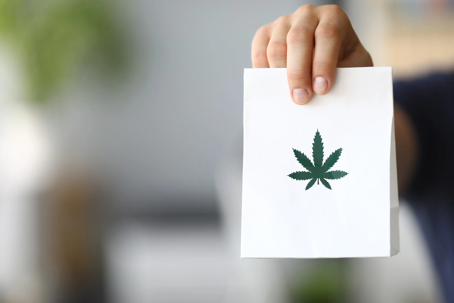Texas allows limited medical use of low-THC cannabis under the Compassionate Use Program. This program permits qualifying patients with certain medical conditions to access cannabis oil with low levels of THC, the psychoactive component in marijuana. However, does this mean that it’s okay to smoke weed while on probation?
Probation can be a complex and challenging process, particularly when it comes to adhering to strict conditions and guidelines set forth by the court and your parole officer. It’s best to consult an experienced criminal defense attorney who can explain the terms of your probation regarding marijuana.
Qualifying Conditions for Medical Marijuana in Texas
Under the Texas Compassionate Use Program (CUP), patients with specific medical conditions may qualify for the use of low-THC cannabis. As of now, the qualifying conditions include:
- Intractable epilepsy
- Seizure disorders
- Multiple sclerosis (MS)
- Spasticity
- Amyotrophic lateral sclerosis (ALS)
- Autism
- Terminal cancer (chronic pain)
- Incurable neurodegenerative diseases
The Texas Department of State Health Services (DSHS) periodically updates the list of qualifying conditions, which can expand based on new legislation or medical findings. Post Traumatic Stress Disorder (PTSD) was recognized by Texas House Bill 1535 and courts as a valid qualifying condition for the cannabis medical program.
Legal Restrictions and Limitations to Medical Marijuana
Low-THC Cannabis Only
Texas marijuana laws permit only low-THC cannabis, defined as cannabis containing no more than 0.5% THC by weight and at least 10% cannabidiol (CBD) by weight. This contrasts with other states where higher THC levels are allowed for medical use.
Prescription Requirement
Medical marijuana in Texas can only be prescribed by physicians who are registered with the Compassionate Use Registry of Texas (CURT). These physicians must diagnose patients with one of the qualifying conditions and determine that the benefits of low-THC cannabis outweigh the risks.
No Smoking Allowed
Texas law does not permit the smoking of medical cannabis. Instead, low-THC cannabis is available in forms such as oils, tinctures, and edibles. Hence, the short answer to the question, “Can you smoke on probation with a medical card in Texas?” is a hard no.
Federal Law Considerations
Despite medical cannabis programs allowed by Texas health departments, marijuana remains illegal under federal laws. This means that medical marijuana patients need to address the complexities of state versus federal legality, particularly concerning employment, housing, and travel.
General Terms and Conditions of Probation in Texas
Probation is a form of community supervision that allows individuals to serve their sentences outside of jail, under specific conditions set by the court. Probation terms can vary depending on the offense and the court’s decisions, but common general rules and prohibitions typically include:
- Regularly reporting to a probation officer
- Maintaining employment or enrolling in educational programs may be required
- Completing probation sentences, including mandatory community service hours, which must be completed within a specified timeframe
- Notifying a probation officer of any changes in address or travel plans
- Consenting to searches of their person, property, or residence by law enforcement or probation officers without a warrant
Terms Related to Drug Use While Out on Probation
Drug use and marijuana possession are critical concerns for probation under state law, especially if you were convicted of drug crimes:
Prescription Medication Disclosure
Probationers must disclose a valid prescription and all prescribed medications to their probation officer. This includes medical marijuana, even if legally prescribed, as its use can still be a criminal offense under federal law and probation terms.
Drug Testing
Regular and random drug testing is a standard condition. Tests can be conducted through urine, blood, hair, or saliva samples. Failing a drug test can lead to a probation violation and potential incarceration.
Substance Abuse Treatment
Probationers with a history of drug offenses may be required to attend substance abuse counseling or rehabilitation programs. Completion of these programs is often a condition for remaining on probation.
Abstinence from Drugs and Alcohol
Total abstinence from illegal drugs and alcohol—in some cases—is a common condition. Probation officers may enforce strict no-tolerance policies regarding drug and alcohol use.
Search Conditions
Probationers may be subject to searches for drugs without prior notice. If drugs are found, it can result in immediate probation revocation.
Association Restrictions
Associating with known drug users or dealers is typically prohibited. Probationers must avoid environments where illegal drug use occurs.
Court Restrictions on Use of Medical Marijuana on Probation in Texas
You need to tread carefully since the state and federal laws regarding marijuana use are stringent. Probation conditions in Texas typically include a prohibition on the use of illegal drugs. Despite holding a medical marijuana card, marijuana remains illegal under federal law and is classified as a Schedule I controlled substance. This means that probationers are often required to abstain from all forms of marijuana, including medical marijuana.
Judges in Texas have significant discretion in setting and enforcing probation terms. This includes the ability to permit or prohibit the use of medical marijuana. Some judges may be sympathetic to medical needs and allow its use, while others may adhere strictly to federal regulations and prohibit it.
However, you need to understand that the permissibility of medical marijuana use while on probation in Texas varies on a case-by-case basis. Factors influencing the court’s decision include:
- Nature of the Offense: Probation for drug-related offenses may come with stricter conditions regarding drug use.
- Medical Necessity: Strong medical evidence supporting the necessity of medical marijuana can be persuasive.
- Compliance History: Demonstrating a history of compliance with probation terms may positively impact the court’s decision.
Immediately consult with a drug and DUI lawyer if caught using while out on parole.
Role of a Probation Officer on Medical Marijuana Use
Probation officers are responsible for ensuring compliance with probation terms. They may conduct regular and random drug tests. A positive test for THC, even with a medical marijuana card, can be considered a probation violation unless explicitly permitted by the court.
Your parole officer may consider medical documentation and prescriptions for low-THC cannabis. They will also judge whether the cannabis you hold has any psychoactive effects. However, unless the court explicitly allows medical marijuana use, the probation officer will need to adhere to standard probation conditions that typically prohibit any marijuana use.
If a probationer tests positive for THC, the officer will determine whether it constitutes a violation based on the court’s directives. They will then decide the appropriate action, which could range from a warning to recommending probation revocation. The first offense doesn’t generally lead to a revocation of probation or jail time. However, you should consult an experienced medical marijuana lawyer to understand how probation conditions may affect your medical card and legal standing.
Application of Supreme Court Ruling in Walton v. People (Case No. 18SC84)
John Walton, a Colorado resident with a valid medical marijuana card, found himself in conflict with the terms of his probation. Walton had been convicted of a non-violent drug offense and was subsequently placed on probation. As a condition of his probation, Walton was required to abstain from using controlled substances, including marijuana. Despite his legal right to use medical marijuana under Colorado law, this probation condition created a significant legal dilemma under existing case law.
The court examined the relevant statutes governing probation and medical marijuana, considering both the text and the broader legislative context. The court recognized that the plain language of the probation condition explicitly prohibited the use of controlled substances, including marijuana. However, they also noted that the legislature had enacted laws legalizing medical marijuana and protecting qualified patients from prosecution.
To resolve the conflict, the court employed principles of statutory interpretation, such as the rule of lenity—which dictates that ambiguities in criminal statutes should be resolved in favor of the defendant. Considering the legislative history and the state’s policy regarding the medicinal benefits of marijuana, the court orders concluded that the probation condition should not be interpreted to prohibit the lawful use of medical marijuana by a qualified and registered patient.
Importance of Legal Counsel for Probationers Relying on Medical Marijuana
Here is an in-depth look at why having an experienced attorney is essential for probationers who depend on medical marijuana:
Advocating for Probation Modifications
Petitioning the Court
Experienced legal counsel can petition the court to modify probation terms to allow for the use of medical marijuana. This involves presenting compelling evidence of medical necessity and demonstrating that the use of medical marijuana is in the best interest of the probationer’s health.
Presenting Medical Evidence
Attorneys can gather and present documentation, including medical marijuana prescriptions and physician statements. This evidence can be vital in convincing the court to allow exceptions to standard probation conditions.
Protecting Against Probation Violations
Defending Positive Drug Tests
If a probationer tests positive for THC, legal counsel can argue that the positive result is due to prescribed medical marijuana use. They can present evidence and legal arguments to prevent the positive test from being treated as a probation violation.
Negotiating with Probation Officers
Your lawyers can negotiate with probation officers to ensure they understand the legal basis for medical marijuana use. This can prevent misunderstandings and unnecessary violations, fostering a more cooperative relationship.
Ensuring Compliance and Minimizing Risks
Advising on Compliance
Legal counsel can provide ongoing advice to ensure probationers comply with all other probation conditions while using medical marijuana. This includes guidance on Texas probation laws medical marijuana, reporting requirements, drug testing, and interactions with probation officers.
Preparing for Court Appearances
If court appearances are required, your attorney can prepare you, helping you understand what to expect and how to present your case effectively. This preparation can impact the outcome of probation hearings.
Steps to Protect Your Rights for Using Medical Marijuana on Probation in Texas
- Thorough Review: Carefully read and understand all the terms and conditions of your probation. Pay special attention to any clauses related to drug use and controlled substances.
- Legal Strategy: Your attorney can help develop a legal strategy to protect your rights, including petitioning the court for modifications to your probation terms if necessary.
- Disclosure: Inform your probation officer about your medical marijuana card and provide them with all relevant medical documentation.
- Proof of Legitimacy: Ensure that you have a valid and up-to-date medical marijuana card and any other required documentation to prove the legitimacy of your medical marijuana use.
- Compliance: Ensure strict compliance with Texas probation medical card rules and all other terms of your probation, such as attending required meetings, completing community service, and avoiding any illegal activities.
Tisdell Law Firm Provides Legal Protection for Medical Marijuana Users
At Tisdell Law Firm, we recognize the importance of upholding your rights as a medical marijuana patient while complying with probation terms. Whether you need assistance petitioning for probation modifications or defending against probation violations, our attorneys can provide competent and aggressive legal representation.
Our attorneys have over 20 years of combined experience in protecting the rights of cannabis users and ensuring fair treatment under the law. To schedule your free consultation, call us or fill out this online contact form.

